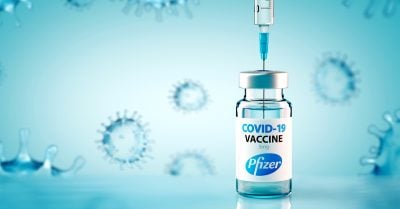Pathologist: FDA ‘Misled the Public’ on Pfizer Vaccine Efficacy

All Global Research articles can be read in 27 languages by activating the “Translate Website” drop down menu on the top banner of our home page (Desktop version).
***
Pfizer’s announcement in November 2020 that clinical trials showed its COVID-19 vaccine was “95% effective” prompted Dr. Sin Hang Lee, a Connecticut pathologist, to question Pfizer’s methodology and petition the U.S. Food and Drug Administration (FDA) to require accurate counts of COVID-19 cases in the Pfizer/BioNTech COVID-19 mRNA vaccine trial before granting the vaccine Emergency Use Authorization (EAU).
As The Defender reported in November, Lee, who is director of Milford Molecular Diagnostics, said:
“Until an accurate count of COVID-19 cases in the vaccinated and placebo groups has been determined for vaccine efficacy evaluation, we are asking the FDA to stay its decision regarding the emergency use authorization for this vaccine.”
Lee’s request was rejected by the FDA on Dec. 11, the same day the agency approved Pfizer’s vaccine for emergency use. On Feb. 8, Lee filed an amended reply.
Here’s the sequence of events as they unfolded:
On Nov. 23, 2020, Lee, along with Informed Consent Action Network (ICAN) and its counsel, submitted a Citizen Petition and petition for administrative stay of action to the FDA relating to the phase 3 trial of the BNT162b/Pfizer vaccine to prevent the novel coronavirus SARS-CoV-2.
In the petition and stay, Lee requested the FDA amend the study design for the late-stage trial of Pfizer’s COVID-19 vaccine. Specifically, Lee requests:
“Before an EUA or unrestricted license is issued for the Pfizer vaccine, or for other vaccines for which PCR results are the primary evidence of infection, all “endpoints” or COVID-19 cases used to determine vaccine efficacy in the Phase 3 or 2/3 trials should have their infection status confirmed by Sanger sequencing, given the high cycle thresholds used in some trials. High cycle thresholds, or Ct values, in RT-qPCR test results have been widely acknowledged to lead to false positives … All RT-qPCR-positive test results used to categorize patient as “COVID-19 cases” and used to qualify the trial’s endpoints should be verified by Sanger sequencing to confirm that the tested samples in fact contain a unique SARS-CoV-2 genomic RNA.”
The petition makes these requests because the phase 2/3 clinical trial of the Pfizer COVID-19 vaccine uses a presumptive RT-qPCR (“PCR”) diagnostic test, which is known to generate high rates of false-positive results.
In addition, the Pfizer vaccine trial primarily uses a PCR test that employs cycle thresholds up to 44.9 to identify COVID-19 “cases” despite the fact that “positive” results that require cycle thresholds greater than 30 to 35 are usually false positives, according to Lee.
Lee offered to re-test the residues of tested samples in his laboratory if Pfizer is unable to do so in order to confirm Pfizer’s stated vaccine efficacy rate of 95%.
Lee’s Sanger sequencing-based method for molecular diagnosis of SARS-CoV-2 was published in International Journal of Geriatrics and Rehabilitation.
On Dec. 11, 2020, the same day the FDA granted Pfizer Emergency Use Authorization for its COVID-19 vaccine, the FDA responded to Lee’s petition and request for stay. The agency “conclude[d] that the petitions do not contain facts demonstrating any reasonable grounds for the requested action” and denied the petitions.
The FDA, among other things, stated that “PCR testing does not need to be followed by Sanger or other sequencing for purposes of clinical diagnosis. Currently, reverse real-time PCR (RT-PCR) tests can both amplify and confirm the identity of viral genetic material in a single reaction, without a separate sequencing step.”
On Feb. 8, Lee, through ICAN’s counsel, submitted a detailed and thoroughly cited reply to the FDA’s denial of his petition and stay. This reply points out the inaccuracies, contradictions and omissions in the FDA’s denial of the petition.
Lee wrote that the FDA’s letter denying the petition and stay “shows that the FDA has not conducted an adequate evaluation of the Pfizer vaccine’s efficacy, especially concerning issues about the accuracy of RT-qPCR testing of SARS-CoV-2 in clinical specimens.”
Lee’s detailed response, which can be read in full here, goes on to say:
“The FDA has misled the public. The key misleading statements are analyzed below point-by-point according to the sequence of their presentation in the Letter but under the following four categories for the convenience of the readers:
“A. Cherry-picking to eviscerate the guidance for issuance of an EUA for a COVID-19 vaccine.
B. Knowingly promoting inaccurate PCR tests for SARS-CoV-2.
C. Finding excuses for using PCR tests with high false-positive rates for this vaccine trial.
D. Glossing over potential risks of an mRNA vaccine while concealing its true efficacy.”
Lee, ICAN and others are weighing possible future actions.
Featured image courtesy of Children’s Health Defense

